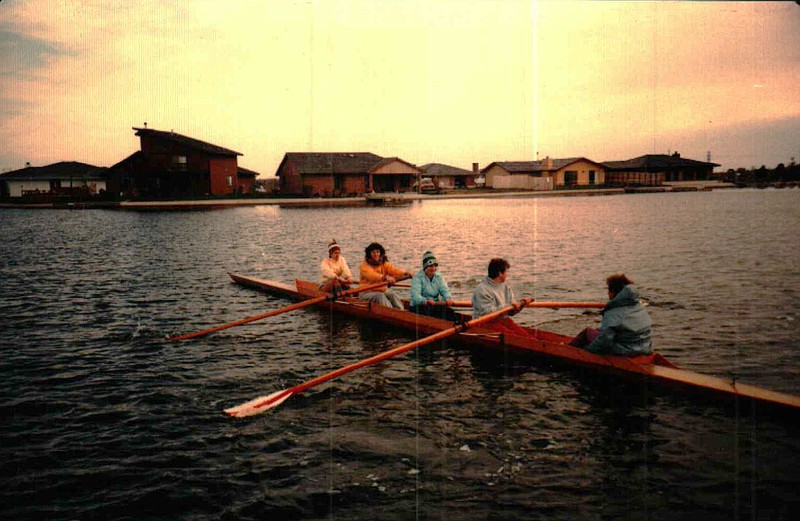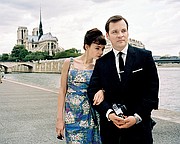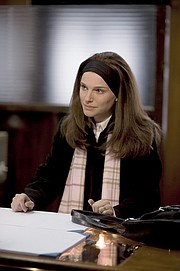William Woods University professor Linda Davis wore her red University of Nebraska rowing-team shirt as she talked about the challenges and successes of the team at a presentation Tuesday night in the school's library. Davis drew parallels between her team's challenges and the challenges in Daniel Boone Regional Library's One Read book, "The Boys in the Boat: Nine Americans and Their Epic Quest for Gold at the 1936 Berlin Olympics," by Daniel James Brown.
"Look at the "Boys in the Boat' and look at Nebraska and when someone is telling you you're crazy for trying that, maybe you need just one or two other crazy people," Davis said.
The University of Nebraska started a rowing team a few years before Davis' freshman year. She rowed all four years she was in college. Davis said, "The Boys in the Boat" is a great read, even if you are not a rower.
"It's about rowing, but it's about much more than rowing, too," Davis said about the book during her presentation. "There were so many obstacles (in the book) - it was just a bad time."
"The Boys in the Boat" is about a men's rowing team that made it to the 1936 Berlin Olympics. Davis said the financial difficulties of the Great Depression were the largest challenge for the team. The book, Davis said, painted a clear picture of the social, economical and political challenges the team faced.
When the University of Nebraska rowing team was first starting, it, too, faced challenges. The team did not have university funding and equipment was expensive. The shells and oars cost between $5,000 and $7,000 in the 1970s, Davis said. The team also struggled with recruitment at first. Davis said not many in the Midwest had even heard of rowing.
Harvard University donated one of its older boats for the team to use. Rowing-team members wrote letters to solicit donations and ask other teams for broken or old equipment for them to use. They also cleaned university stadiums after games to raise money.
After the team acquired enough equipment, it had another challenge - storage. Davis said rowing boat shells are fragile and would not hold up against winter in Nebraska.
Members of the team broke the lock on a storage shed on campus, put their equipment inside and placed a new lock they had purchased on the door. While the university was initially upset, Davis said, they did let the team keep the storage shed.
To solve their recruiting struggle, the team used the lack of knowledge of rowing to their advantage. Davis said the team would plant a rowing shell and oars outside of the campus center and let students' curiosity about the boat draw them in. Within a few years, the team became the second largest activity on campus.
"Nobody knew what we were getting into, which is better I think," Davis said.
During recruitment, Davis said, the team members failed to mention one thing - practice was at 4:15 a.m. Another surprise came when the coach announced to Davis and her teammates that they would be part of the light-weight rowing division. Every rower in the light-weight division had to weigh no more than 130 pounds.
Davis said she had just put on the "freshman 15." The team helped each other stick to healthy eating and exercising habits. She said her team, which included two of her sisters, quickly became close friends.
Davis quoted Nancy Wood, one of the women on the first women's team in 1973, during her presentation.
"There really are no tangible rewards in rowing... Instead we are content with knowing we have done the best we can," Davis read out loud, quoting Wood during the presentation.
That satisfaction in knowing they did their best and worked as a team is what Davis remembers. The book and the story of her university rowing team's founding, are both about more than rowing, Davis said. Both stories show what is possible.
"It's amazing what you can do if you have the little bit of tenacity that these people did," Davis said.



